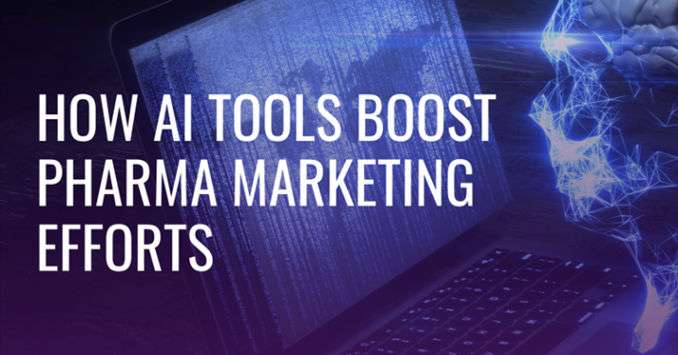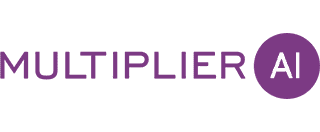How AI Tools Boost Pharma Marketing Efforts

In the rapidly evolving landscape of pharma marketing, AI tools have emerged as indispensable assets, revolutionizing the way companies engage with healthcare professionals, patients, and stakeholders. By harnessing the power of artificial intelligence, pharma marketers can now analyze vast amounts of data with unprecedented speed and accuracy, enabling them to craft targeted and personalized strategies.
From identifying key opinion leaders to predicting market trends, AI empowers marketers to make data-driven decisions that optimize outreach and maximize ROI. Additionally, AI-driven insights facilitate the development of tailored content and messaging, ensuring relevance and resonance with diverse audiences. Through advanced analytics and predictive modeling, AI tools enable pharma companies to navigate regulatory constraints while staying ahead in an increasingly competitive market.
This article will explore the multifaceted ways in which AI tools enhance pharma marketing efforts, driving innovation and efficiency in an industry dedicated to improving global health outcomes.
Top 3 Challenges in the Pharma Marketing Industry & How To Solve Them
- Striking the Compliance-Engagement Balance – Pharma marketing faces unique challenges due to strict regulations, complex product information, and the need to communicate with both healthcare professionals and consumers. Traditional marketing strategies often struggle to strike the right balance between compliance and compelling messaging. AI tools offer a solution to these challenges by providing a platform for generating compliant yet engaging content.
- Role of AI in Content Generation – AI tools can analyze vast amounts of data, including medical research, patient feedback, and market trends, to create content that is tailored to the specific needs of the target audience. By leveraging machine learning algorithms, these tools can understand the nuances of the pharma industry and generate content that is both informative and persuasive. This enables pharma marketers to effectively communicate the benefits of their products while adhering to regulatory guidelines.
- Personalization at Scale – AI tools also address the challenge of creating personalized content at scale. With the ability to generate content in multiple languages and adapt to different target demographics, these tools enable pharma marketers to reach a wider audience. This level of personalization helps build trust and credibility with customers, leading to increased brand loyalty and better patient outcomes.
How AI Tools Can Enhance Pharma Marketing Efforts
AI tools offer a wide range of features and capabilities that enhance pharma marketing efforts. One of the key benefits is the ability to generate high-quality content quickly. Whether it’s creating blog posts, social media updates, or email newsletters, AI tools can generate engaging content in a matter of minutes. This saves time and resources that can be better utilized in other areas of the marketing campaign.
Another advantage of AI tools is their ability to optimize content for search engines. By analyzing search trends and keywords, these tools can generate content that is highly relevant and optimized for SEO. This helps pharma marketers improve their online visibility and attract more organic traffic to their websites.
AI tools also provide valuable insights into customer behavior and preferences. By analyzing data from various sources, such as social media interactions and website engagement metrics, these tools can identify trends and patterns that help pharma marketers understand their target audience better. This enables them to create more targeted, personalized marketing campaigns that resonate with their customers.
Key Features And Capabilities Of AI Tools
- Human-Like Content Generation – AI tools have several key features and capabilities that make them invaluable for pharma marketers. First and foremost is their ability to generate human-like content. These tools use advanced natural language processing algorithms to understand the context and generate content that is indistinguishable from content written by humans. This ensures that the generated content is not only informative but also engaging and persuasive.
- Adapting to Audience Needs – Another important feature of AI tools is their ability to adapt to different writing styles and tones. This is especially useful in the pharma industry, where different target audiences require different approaches. Whether it’s a professional medical journal or a consumer-facing health blog, AI tools can generate content that matches the desired tone and style.
- Data-Driven Insights – AI tools also excel in their ability to analyze and interpret complex data. By leveraging machine learning algorithms, these tools can identify patterns and trends in large datasets, providing valuable insights for pharma marketers. This enables them to make data-driven decisions and optimize their marketing campaigns for maximum effectiveness.
Best Practices For Integrating AI Tools into Pharma Marketing Strategies
While AI tools offer numerous benefits, it’s important to approach their integration into pharma marketing strategies with a strategic mindset. Here are some best practices to consider:
- Understand Your Target Audience: Before using AI tools, it’s crucial to have a deep understanding of your target audience. This includes their demographics, preferences, and pain points. By knowing your audience inside out, you can generate content that resonates with them.
- Start Small and Experiment: Instead of diving headfirst into using AI tools for all your marketing efforts, start with small experiments. Test different content types and channels to see what works best for your audience. This will help you refine your approach and optimize your campaigns.
- Collaborate with Experts: AI tools are powerful, but they are not a substitute for human expertise. Collaborate with medical professionals, content strategists, and copywriters to ensure that the generated content is accurate, compliant, and aligned with your brand’s values.
- Monitor and Analyze Performance: As with any marketing campaign, it’s crucial to monitor and analyze the performance of your GPT-powered campaigns. Track metrics such as engagement rates, conversion rates, and ROI to measure the effectiveness of your campaigns and make data-backed decisions.
By following these best practices, pharma marketers can effectively integrate AI tools into their marketing strategies and achieve optimal results.
Common Misconceptions About AI Tools in Pharma Marketing
- Despite their numerous benefits, AI tools in pharma marketing are not without misconceptions. One common misconception is that AI tools can replace human creativity and expertise. While these tools can automate certain aspects of content generation, they should be seen as tools to enhance human creativity, not replace it. Human oversight and expertise are crucial in ensuring that the generated content is accurate, compliant, and aligned with the brand’s values.
- Another misconception is that AI tools are only suitable for large pharma companies with extensive resources. In reality, AI tools are accessible to companies of all sizes. Many AI tools offer flexible pricing options and can scale according to the needs of the business. Whether you’re a startup or a multinational corporation, AI tools can be tailored to fit your budget and requirements.
Training And Resources For Using AI Tools in Pharma Marketing
- To fully leverage the power of AI tools in pharma marketing, it’s important to invest in training and resources. Many GPT tool providers offer training programs and resources to help users get up to speed with the tools. These resources can include tutorials, documentation, and webinars that cover various aspects of using AI tools in pharma marketing.
- Additionally, networking with other pharma marketers using AI tools can provide valuable insights and best practices. Joining industry forums, attending conferences, and participating in online communities can foster connections and facilitate knowledge sharing.
- Pharma marketers should also stay updated on the latest developments in GPT technology and the pharma industry. This includes following industry publications, attending webinars and workshops, and engaging with thought leaders in the field. By staying informed, pharma marketers can stay ahead of the curve and continue to innovate in their marketing efforts.
Conclusion: The Future Of Pharma Marketing With AI Tools
AI tools have emerged as a game-changer in the world of pharma marketing. From content creation to customer targeting, these tools offer a wide range of features and capabilities that enhance marketing efforts. By leveraging the power of AI tools, pharma marketers can create personalized, compliant, and engaging content that drives results.
As the pharma industry continues to evolve, the use of AI tools in marketing will become even more prevalent. These tools will continue to evolve, offering even more advanced features and capabilities. By embracing AI tools and staying at the forefront of technological advancements, pharma marketers can unlock the full potential of their marketing campaigns and drive success in an increasingly competitive landscape.
The future of pharma marketing is here, and it’s powered by AI tools. Are you ready to take your marketing efforts to the next level? Embrace the transformative power of AI tools and watch your campaigns soar.
